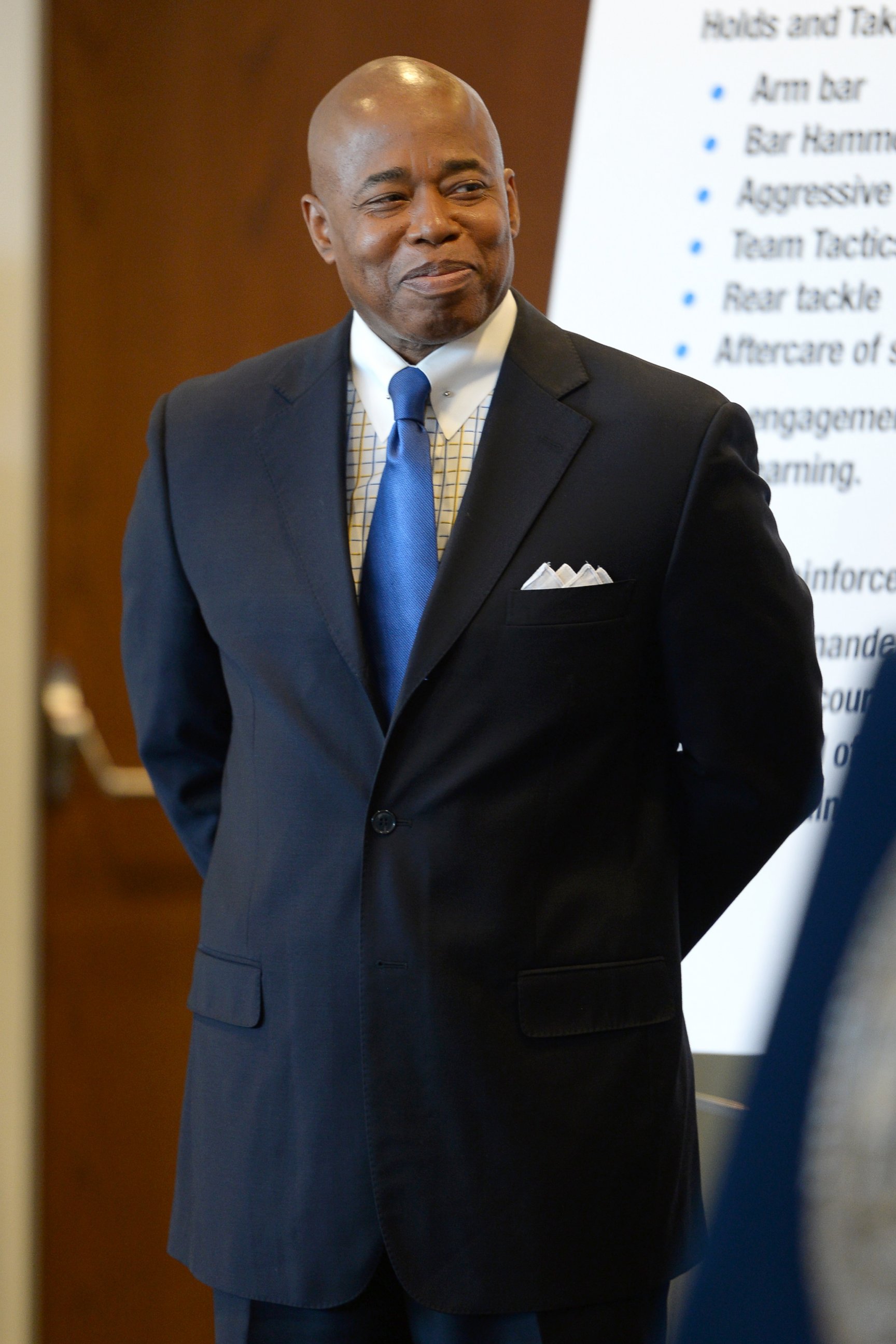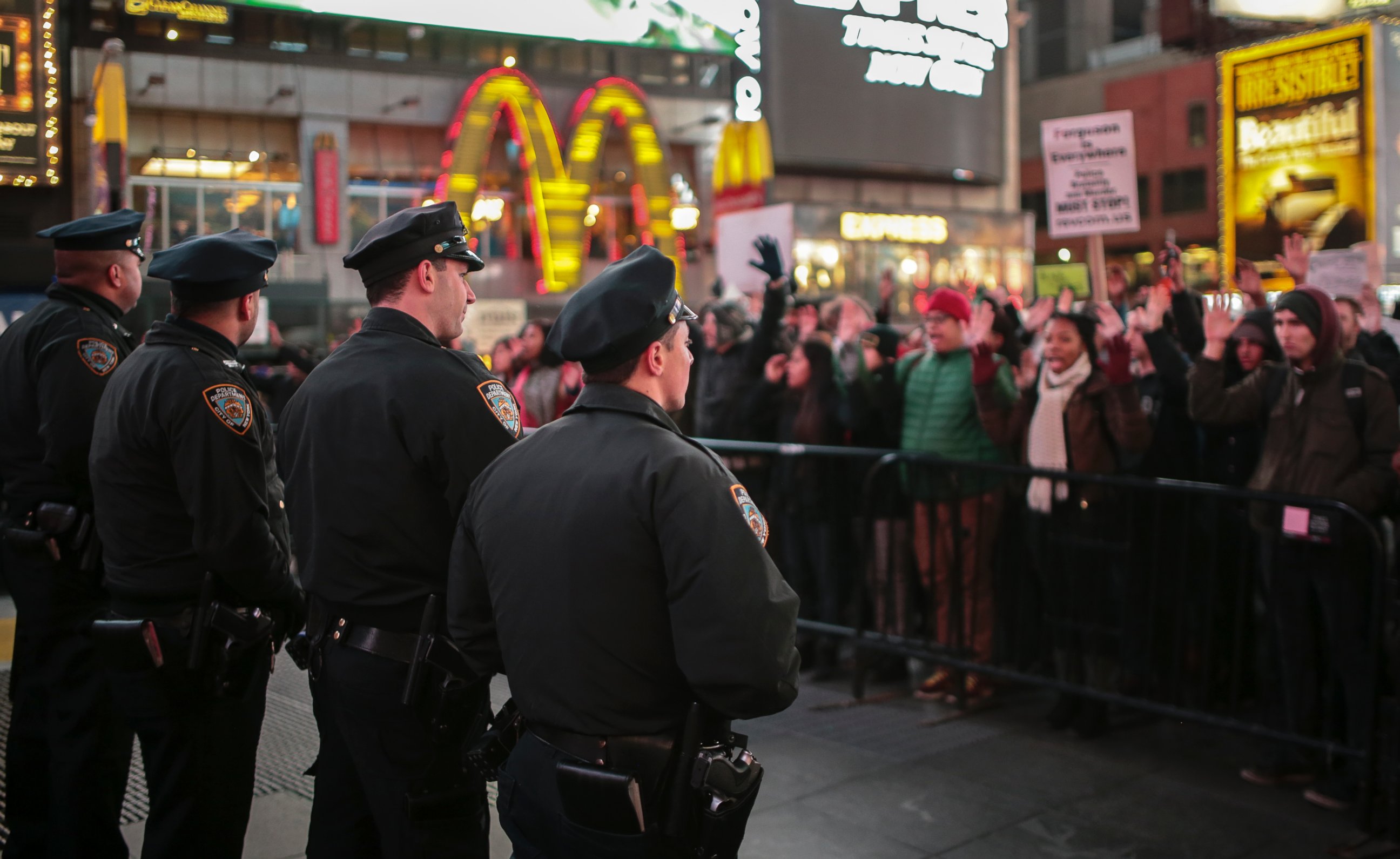What Police Officers Think About Race and Their Job
Cops talk about their racially charged experiences.
— -- One white former NYPD Sergeant recalled a time when he bumped into a black colleague who had been working “deep” undercover and was standing outside the courthouse after an appearance about his third time he killed a suspect on the job.
“He said ‘That's the good thing about being a black man in the NYPD—I can pretty much shoot whoever I want. If you were involved with the shootings that I’ve been involved with, you’d be in a lot of trouble,’” former Det. Sgt. John Paolucci told ABC News. “That always stuck with me.”
According to Paolucci, that interaction happened back in 1997, and he is far from the only former police officer who remembers distinct moments where race played a factor in the way in which the NYPD operated.
Brooklyn Borough President Eric Adams, who is black and was a member of the NYPD for 22 years before going into politics, said that he remembers colleagues opening up to him about how they treated different members of the public differently according to race.
“Another officer told me -- and he was a good officer -- he said 'Eric, I’m going to be honest with you: when I see a black guy with a gun I’m going to take precaution for myself. If I see a white guy with a gun I’m going to take precaution for myself and for him,'” Adams told ABC News.

“We have real racial, homophobic, anti-Semitic, women issues in our society… those same schisms that exist in society exist in the same pool of officers,” Adams told ABC News.
“All of the sudden the uniform comes over the head and you become this angel?”
Renewed scrutiny of the NYPD’s handling of race issues came swiftly after the announcement of the decision by a Staten Island grand jury not to indict a white police officer who put a black man named Eric Garner in a choke hold. Garner died shortly after the altercation, and a video from the scene showed him repeatedly saying "I can't breathe." The day after the grand jury announcement, Commissioner Bill Bratton and Mayor Bill de Blasio detailed the new retraining process that all officers will have to undergo, though they said the change was not a reflection of the grand jury decision but an effort to overhaul the department’s stop and frisk policy.
“I like to use the analogy of alcoholism: I believe our agency (the NYPD) has been intoxicated with police abuse and we now must take the first steps towards sobriety,” Adams told ABC News.
“It must be strategically done and I think what the police department has done is the steps towards sobriety. Anyone who went through AA will tell you, you still live day by day…. you have to constantly have a buddy system to reinforce the partner in that car,” he said.
Now the NYPD will be focusing on improving officers communication skills which, theoretically, will help them build better relationships with the community.

That’s what helped former Sgt. Paolucci do his job while he was working in the south Bronx, which is largely Hispanic, as well as other neighborhoods in Manhattan from 1992 and 2012.
“If you looked around at some of the playgrounds and parks on a hot summer day -- these places are full of criminals, but when you spend time in that community you realize what a small percentage that really is,” Paolucci told ABC News.
He said that some residents would come up to him in the stairwells of the housing projects and thank him for being there, and how he and his colleagues would get bizarre fake emergency calls from elderly residents who were hoping for a different kind of rescue.




